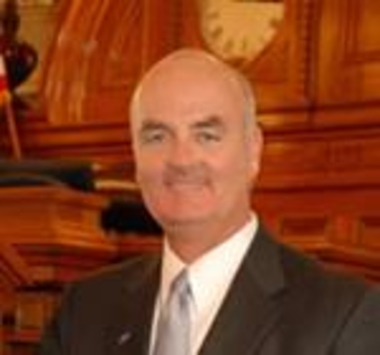Kansas plan for avoiding federal health law advances

Topeka, Kan. (AP) — A proposal to allow Kansas to exempt itself from the national health care overhaul is a serious attempt to shield the state from federal requirements and not merely symbolic, supporters said in February when a House committee sent the bill to the full House. However, before it was heard in the chamber, some legislators expressed concern that Kansans on Medicare might be affected by the proposed law.
On March 21, Democratic Rep. Jim Ward, from Wichita, proposed an amendment to HB 2553, to exclude Medicare from the legislation. The amendment was defeated 61 – 57. The House then passed the bill, 74-48, and sent it to the Senate for consideration.
The legislation would bring the state into a compact with other states, which would ask Congress to give them control over health care policy within their borders.
The Republican-dominated Legislature has shown a strong antipathy toward the federal health overhaul passed in 2010. Most GOP officials in Kansas have said the 2010 is an overreach by the federal government and has imposed burdensome mandates that harm the economy.
Although Congress can set up the compact without the President’s signature, most supporters have conceded that congressional approval of a compact isn't likely unless Republicans capture control of the U.S. Senate this year.
AARP's Kansas chapter has labeled the measure "frivolous," and Democrats contend it amounts to a public protest against the president's signature domestic policy. But Rep. Brett Hildabrand (R-Shawnee) a conservative and the bill's chief advocate in the House, said Kansans are looking for "any way possible to get out from underneath these federal programs."
"This is far from symbolic," he said after the committee's meeting.
Eight other states have enacted similar compact laws, including Missouri and Texas, according to Competitive Governance Action, a Houston-based group advocating the compact. The group’s website says that "consolidated power" in Washington is a threat to the nation.
Supporters of the health care law contend it's bringing affordable health coverage to Americans who haven't been able to obtain it or keep it. They also argue that parts of the law are popular, such as allowing parents to keep young-adult children on their plans, preventing companies from denying coverage, and helping seniors with prescription drug costs.
"It is the law of the land," said state Rep. Louis Ruiz of Kansas City, the House committee's ranking Democrat. "When are they going to realize that it is the law?"
Opposition from GOP state officials toward the federal law kept Kansas from setting up its own online health insurance marketplace, and has blocked an expansion of the state's Medicaid program, leaving 350,000 uninsured.
"I do not like nationalized anything," said state Rep. Marty Read, a Mound City Republican who supports the bill. "I'm going to fight it as long as I can."
AARP opposed the bill partly because it's broad enough that states in the compact could seek to assume control over Medicare, which provides health coverage for seniors, as well as Medicaid, which provides coverage for the needy and disabled.
House Minority Leader Paul Davis, a Lawrence Democrat who's running for governor, said supporters of the bill would do better focusing on creating jobs, reining in local property taxes and boosting funding for public schools.
Original story by John Hanna, AP Political Writer, updated by Gayly staff.
Copyright 2014 The Associated Press. All rights reserved. This material may not be published, broadcast, rewritten or redistributed.
The Gayly – March 28, 2014 @ 10:10am





